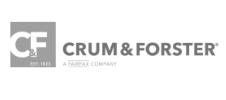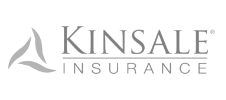Insurance for Drug and Alcohol Rehabilitation Centers

Alcohol and drug rehabilitation clinics deliver critical services—from medically supervised detox and medication-assisted treatment to counseling and aftercare. These services carry real liability exposures: withdrawal complications, medication errors, privacy breaches, and safety incidents on-site.
We tailor policies that protect your residents, staff, and organization. This page explains what your insurance should include, what it typically costs, and which procedures can increase premiums or lead to coverage denials.
- What Insurance Includes – detailed protections for Professional Liability and General Liability.
- Cost of Coverage – clear pricing benchmarks (residential and outpatient) and what drives the price.
- Higher-Risk Exposures – procedures and practices that raise premiums or may trigger denials.
- Why Work With Homewood – how we secure strong coverage for rehab providers.
What our customers say
Get a Free Quote Now
The quickest way to price your program is to complete our short form. Homewood Insurance works with multiple carriers to deliver coverage that fits your level of care, staffing model, and compliance requirements.
Insurance for Drug and Alcohol Rehabilitation Centers can include:
- Professional Liability (medical malpractice) protects against claims of improper detox monitoring, therapy errors, medication mistakes, and failure to prevent self-harm or overdose.
- General Liability (premises liability) covers third-party injuries and property damage—such as slips and falls, altercations, visitor incidents, or unsafe facility conditions.
- Applies to inpatient residential rehab, outpatient programs, medication-assisted treatment (MAT), and dual-diagnosis facilities.
- Includes protection for medical directors, physicians, nurses, addiction counselors, behavioral health techs, case managers, and program directors.
- Typical limits: $1,000,000 per claim / $3,000,000 aggregate, with tail and prior-acts options available.
What insurance can include:
Malpractice or liability insurance can provide essential protection against these risks:
Professional Liability for Alcohol & Drug Rehabilitation Clinics
-
- Detox and withdrawal management: Covers allegations of inadequate monitoring during withdrawal (e.g., seizures, delirium tremens), delayed escalation to emergency care, or incorrect protocols.
- Medication safety and MAT: Protection for prescribing/dispensing errors with methadone, buprenorphine/Suboxone, naltrexone, benzodiazepines, or adjunct meds; includes claims tied to diversion controls, storage, and documentation.
- Therapy and clinical decision-making: Defense for claims that therapy was ineffective, inappropriate, or poorly supervised; includes care-planning errors, missed referrals to psychiatry, and failure to coordinate dual-diagnosis care.
- Self-harm, overdose, and elopement risk: Coverage for allegations that the program failed to assess risk or intervene promptly (e.g., suicide watch protocols, post-discharge relapse planning).
- Use of restraint or seclusion: Protection when clinically justified, with policies and training documented; supports defense if patients allege excessive force or rights violations.
- Regulatory and licensure actions: Coverage for legal defense associated with reportable incidents, peer review, and certain administrative proceedings related to patient safety (policy-dependent).
- Who is covered: Facility entity plus employed and contracted clinicians (medical directors, physicians, NPs/PAs, RNs/LPNs), therapists, counselors, case managers, and behavioral health technicians.
General Liability for Alcohol & Drug Rehabilitation Clinics
- Bodily injury and premises incidents: Slip-and-fall claims, injuries during groups or recreation, visitor/family altercations, and accidents in common areas (hallways, dining, outdoor spaces).
- Property damage and operations: Claims for damage caused by clients or staff to third-party property; includes off-site activities if scheduled/endorsed.
- Personal and advertising injury: Defamation, false statements, or reputational disputes unrelated to clinical records (HIPAA and cyber exposures are typically handled under a separate cyber policy).
- Facility applicability: Inpatient residential centers, outpatient clinics, detox units, and MAT/Suboxone clinics; can be extended to sober living and aftercare programs with the right endorsements.
- Program add-ons: Options for Evacuation Expense (e.g., severe weather), abuse and molestation coverage, and umbrella/excess limits where contracts require higher limits.
Homewood Insurance Group work with different insurance carriers to find you the most suitable coverage at the best price. Get a quick quote now.
-
Standard residential rehab (no high-acuity detox): Approximately $700–$1,300 per occupied bed.
- Why: Routine counseling and group work, lower medication intensity, established safety protocols.
-
Residential with on-site detox or dual-diagnosis track: Approximately $1,100–$1,900 per bed.
- Why: Higher medical oversight, withdrawal risks, psychiatric comorbidity, and after-hours incidents.
-
High-litigation venues or adverse loss history: $1,900+ per bed.
- Why: Prior claims, tougher jury environments, or corrective actions from surveys/regulators.
Outpatient, Intensive Outpatient (IOP), and Office-Based Programs
-
Professional Liability (per clinician per year): $2,500–$7,500 (higher for prescribers, dual-diagnosis, or high opioid volumes).
- Why: Risk varies by license, prescribing activity, and scope of services offered.
-
General Liability (per location per year): $1,000–$4,000 for typical clinic footprints.
- Why: Patient/visitor foot traffic, group activities, and landlord requirements.
What drives price up or down (plain-English factors):
- Level of care and scope: On-site detox and dual-diagnosis increase risk; basic counseling only is lower.
- Medication controls: Secure storage, DEA compliance, witnessed dosing, and eMAR reduce medication-related losses.
- Staffing and training: Documented competencies, crisis intervention training, and low turnover reduce frequency and severity of claims.
- Safety and incident response: Suicide/self-harm protocols, elopement prevention, and timely escalation to urgent/emergency care.
- Claims history and venue: Recent losses or operation in highly litigious states can raise rates or deductibles.
- Documentation and audits: Clear informed consent, treatment plans, and incident logs help defend claims and stabilize premiums.
| Procedure Category | Examples | Why Higher Risk? | Insurance Impact |
|---|---|---|---|
| Medically supervised detox | Alcohol/benzodiazepine/opioid withdrawal units | Seizures, delirium tremens, respiratory or cardiac complications if monitoring or escalation is delayed. | Premiums rise substantially; denial possible without 24/7 clinical staffing and written protocols. |
| Medication-Assisted Treatment (MAT) | Methadone, buprenorphine/Suboxone, naltrexone | Dosing errors, diversion, overdose, and strict DEA compliance requirements. | Often needs endorsements; premiums increase; denial if storage, chain-of-custody, or DEA controls are weak. |
| Dual-diagnosis services | Addiction + co-occurring psychiatric care | Higher suicide/self-harm risk; missed psychiatric referrals or therapy failures lead to severe claims. | Premiums can double without specialized staff and escalation pathways. |
| Restraint, seclusion, crisis holds | Physical or chemical restraint, seclusion rooms | Injury and abuse allegations; strict documentation and training required. | Surcharges and higher deductibles; exclusions or denial if policies/training are missing. |
| Telehealth-heavy or remote programs | Virtual counseling, e-prescribing across state lines | Limited crisis intervention, licensure pitfalls, and data-privacy exposure. | PL surcharges; separate cyber policy often required to place coverage. |
| Discharge & aftercare | Early discharge, weak relapse-prevention planning | Post-discharge overdose or readmission allegations tied to negligent planning. | PL premium increases and higher retentions if incident rates persist. |





















Other types of Insurance Drug and Alcohol Rehabilitation Centers can need

General Liability Insurance

Professional Liability Insurance

Sexual Abuse and Molestation Insurance

Commercial Property Insurance

Workers Compensation Insurance

Cyber Liability Insurance
Why Work With Homewood
We place rehab providers with A-rated carriers that actively write detox, MAT, residential, and outpatient treatment.
- We strengthen submissions—policies, staff training, DEA controls, incident logs, and aftercare plans—to earn underwriting credits.
- We compare combined vs. split Professional Liability and General Liability, add abuse/molestation and umbrella limits as required, and coordinate cyber liability for PHI/telehealth.
- Our goal: comprehensive protection at a competitive premium, with no gaps between clinical, premises, and technology risks.
Call 947-274-3093 or
Fill Out the Form
Ralph Schiller
Ralph specializes in sourcing the most suitable insurance for Drug and Alcohol Rehabilitation Centers at the best price. You can call him or fill out the form and he will get your message directly.







